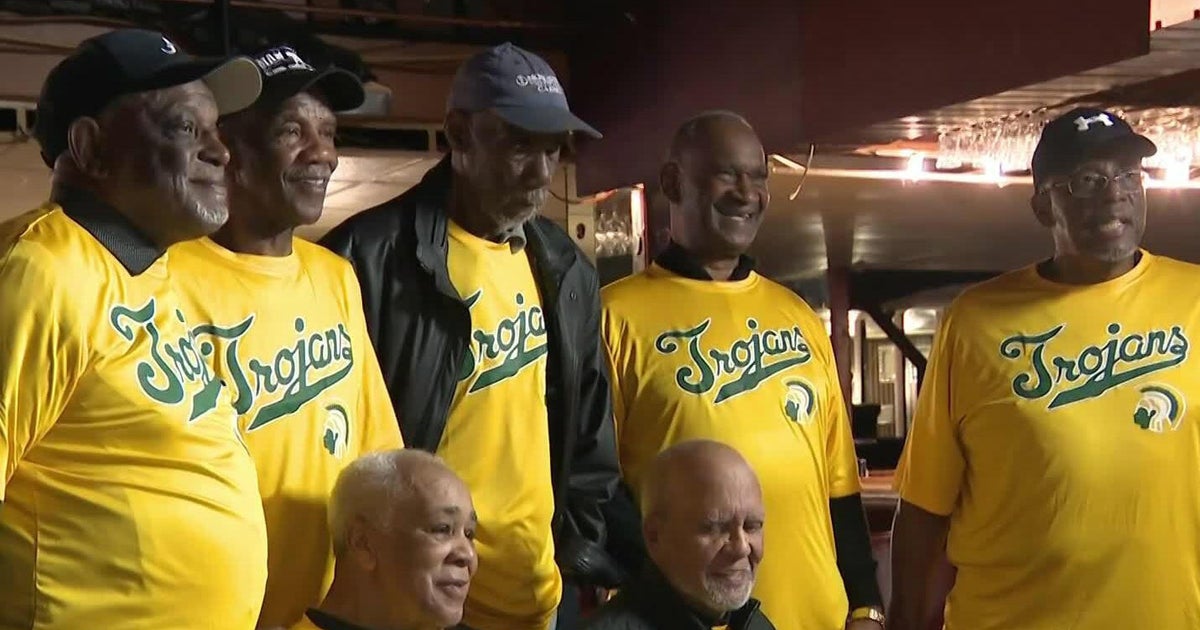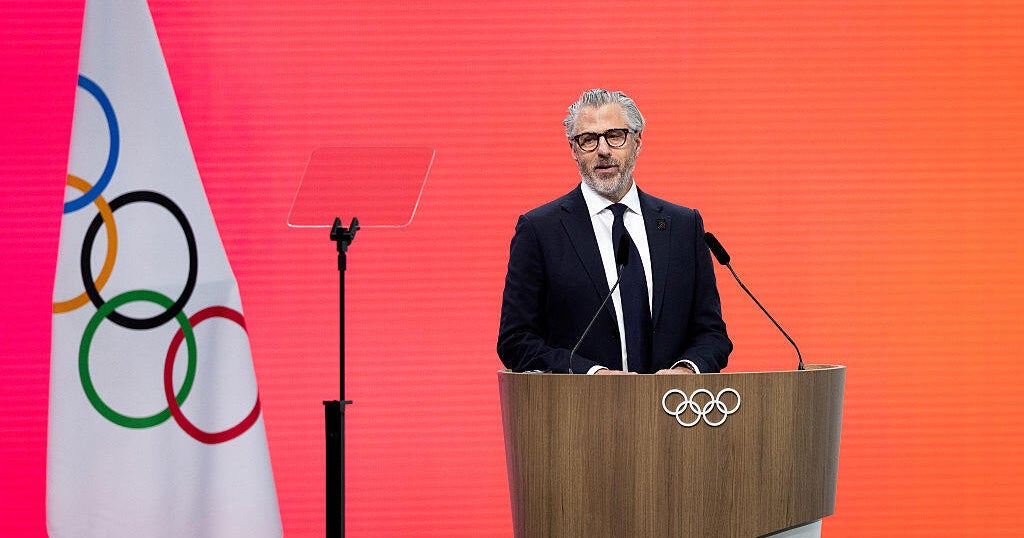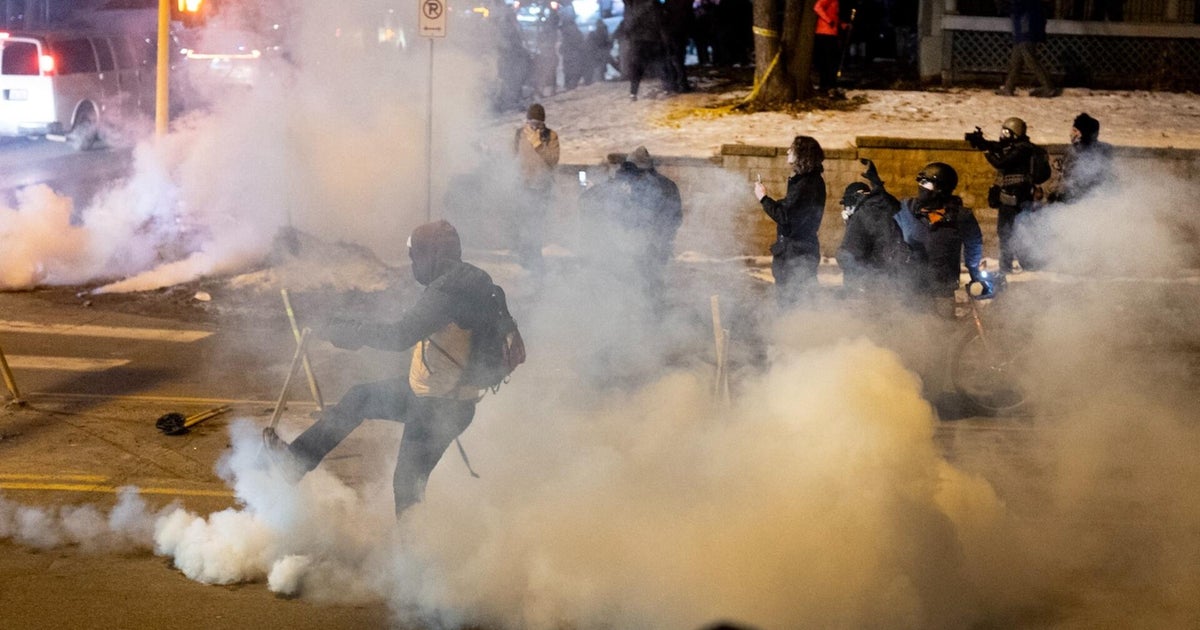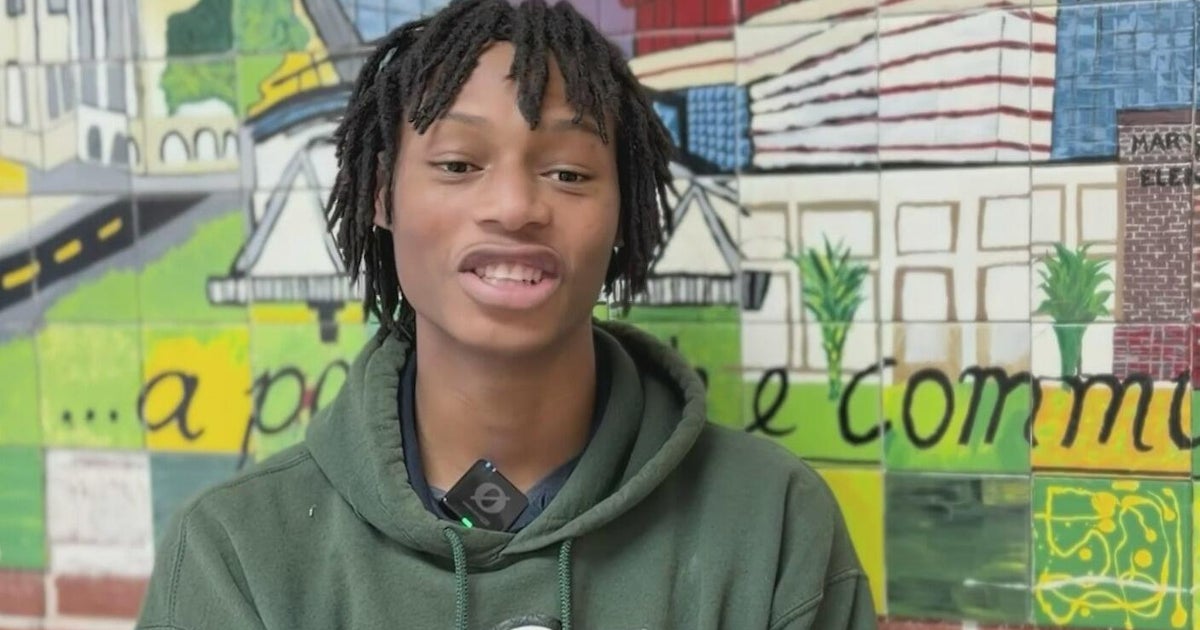Chicago Mayor-elect Johnson and Mayor Lightfoot meet to discuss transition
CHICAGO (CBS) -- Mayor-elect Brandon Johnson met Thursday with Mayor Lori Lightfoot for the first time since Tuesday's election.
As CBS 2's Chris Tye reported, Johnson said there were a flood of emotions as he entered the office that will soon be his.
In a dry run of what his commute will soon look like, Mayor-elect Johnson arrived at City Hall with a few dozen staffers to watching.
The mayor-elect said it was a collegial meeting, and it felt very comforting.
He also said an unmistakable history-making feel was in the air.
"This moment is quite frankly a historical moment where the first Black woman LGBTQ transitioned her administration to another Black mayor," Johnson said.
Johnson also said he received an unambiguous message from Mayor Lightfoot — that she and her team will do everything possible to make sure his administration gets off on the right foot.
He was short on details for what is next - and the sitting mayor didn't speak to the press at all.
This was Johnson's first visit to City Hall since winning Tuesday. As he arrived, a few dozen city staffers watched as he entered the elevator to the fifth-floor Mayor's office.
Once upstairs, Mayor Lightfoot greeted him. They spoke for 90 minutes - about a half hour longer than expected.
It was a Valentine's Day mayors forum where it became clear there's no love lost between the Lightfoot and Johnson camps.
"Let me be very direct. Brandon Johnson is a nice guy - eloquent speaker. You can tell he's a preacher's son," Mayor Lightfoot said at the time. But she went on to say, "Brandon is bad for Chicago."
But Johnson said while he and Lightfoot had their differences on the campaign trail — and at times Lightfoot took direct shots at Johnson — he says that is behind them.
"We didn't really discuss campaign, because that's over," he said. "We talked about the future."
But specifics of that future were kept under wraps. There was no talk of who will stay and who is being removed from City Hall under the Johnson administration — or who will be the city next police superintendent.
And when he entered the Mayor's office — a wave of emotion came over him.
"I will say crossing the threshold, I had a flood of emotions," Johnson said. "You know, I thought a lot about my parents - and my mother in particular, who's no longer with us; she's an ancestor - what this moment means for, for people around the city, who want the city to be united."
Johnson will be inaugurated on May 15. Lightfoot, who finished third in the first round of voting in the mayoral election, had said she's ready to support the transition.
in an official statement, Johnson said: "Mayor Lightfoot and I had a positive, productive discussion today about the future of our city. During the meeting, I expressed my deep gratitude for her service to Chicago, and she graciously offered her full support during the mayoral transition. Based on our conversation today, I'm confident this will be a smooth transition that helps us come together as a city to deliver a better, stronger, safer Chicago."
Mayor Lightfoot, again, did not speak to the press – which, other than after the death of a firefighter this week, she hasn't done since losing re-election.
But Mayor Lightfoot tweeted: "Today, I met with Mayor-elect Brandon Johnson. We discussed the process for transitioning to a new administration, and I ensured him that myself and the Mayor's Office staff are ready to support him over the next several weeks."
Earlier on Thursday, Johnson was on CBS Mornings, talking about the city's budget and changing how money is spent on public safety.
"What is required in this moment is for us to be smart about our investments, to be critical in our thinking, and then to make sure that what we're doing actually works," Johnson said.
While Johnson has said he wants to fill hundreds of police officer vacancies, he also wants to address the root causes of crime, by investing more in affordable housing, mental health treatment, and other social services.
He has endorsed the so-called "Treatment Not Trauma" ordinance, which would call for non-police response to mental health calls to 911.
While the city launched a pilot program for paramedics and mental health professionals respond to 911 calls instead of police officers in some parts of the city, advocates for "Treatment Not Trauma" want that model expanded citywide.
"In essence, first responders, social workers, counselors, EMTs, these individuals would show up to calls that require those types of interventions. In fact, in Chicago, almost 40% of the 911 calls are mental health crises," he said. "We're asking police officers to do their jobs and someone else's."
Johnson also sat down with CBS 2 Investigator Dana Kozlov on Wednesday about his plans when he takes office.








